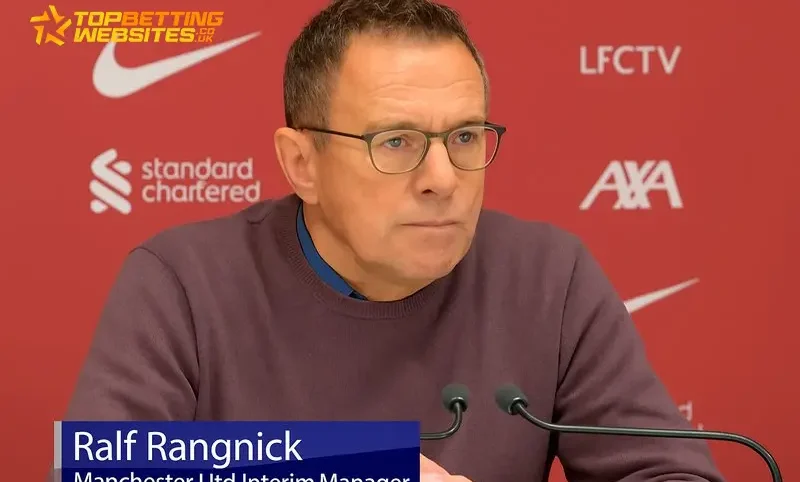Ralf Rangnick’s Red Warning Lights: Six Calls He Got Spot On at Man United

Ralf Rangnick’s interim reign at Manchester United never felt like a fairytale. It was messy, short, and, at times, brutal. But here’s the thing: the German told some home truths that the club is still wrestling with. The ‘Godfather of the Gegenpress’ arrived in December 2021, left without the promised consultancy, then rebuilt his reputation with Austria — topping a Euro 2024 group with France, the Netherlands and Poland before falling to Turkey in the last 16. He even turned down Bayern Munich to keep that project rolling. Not bad for a man many wrote off in England.
For context, the numbers weren’t kind: until Ruben Amorim took over, Rangnick owned the lowest win rate of any United boss since 1972 — 11 wins from 29, a shade under 38%. Yet results never told the full story. His analysis did. Here are six calls Rangnick made that have aged rather well.
1) ‘Open-heart surgery’ — he saw the scale of the rebuild
Rangnick didn’t sugar-coat it. He said United needed more than a tidy-up and he was bang on. The club’s structural overhaul under Sir Jim Ratcliffe and INEOS has been stop-start: big decisions, bigger U-turns, and precious little on-pitch payoff. A new deal for Erik ten Hag, then an exit three months into the season; a drawn-out dance around senior football roles; angry reactions to price rises and job cuts; all while the team sinks into the wrong half of mid-table. The diagnosis was right: it wasn’t a sticking plaster job — it was open-heart surgery.
2) Backing Garnacho early — and seeing the ceiling
Rangnick was first to put Alejandro Garnacho on a Premier League bench in April 2022 and flagged him as one for the future. That read was spot on. The winger blossomed under Ten Hag, racking up 50 games in a season and becoming a genuine threat. His United chapter cooled under Amorim, and he’s now set on proving he’s among the elite young widemen at Chelsea. The original call, though, was clear: the kid had it.
3) Elevating Elanga — the overlooked success story
Anthony Elanga wanted a loan when Rangnick landed. One training session later and the Swede had changed his manager’s mind. Fast-forward and Elanga justified the faith: a productive stint at Nottingham Forest — 11 goals and 21 assists — earned a £55m switch to Newcastle United in 2025. Stack his direct contributions against United’s wide forwards over the same stretch and he’s right there, if not ahead. Rangnick spotted the attitude and the end product before most.
4) Transfer tips United ignored — the one that got away (and another, and another)
Rangnick pushed for a proper talent drive while in the hot seat. Names on his list? Enzo Fernández, Erling Haaland, Joško Gvardiol, Julián Álvarez, Christopher Nkunku, plus options like Luis Díaz, Dušan Vlahović and Álvaro Morata. The club wouldn’t bankroll an interim’s rebuild. Since then, those targets have exploded in value and influence elsewhere. Hindsight’s 20/20, sure — but this wasn’t blind luck. It was a plan United never executed.
5) Calling out the ownership and football structure — the brave bit
Within a fortnight, Rangnick could see the cracks: outdated processes, muddled decision-making, and a lack of alignment from boardroom to dugout. He questioned whether the appetite for real change existed. He didn’t get the mandate to fix it, and he said as much. Years on, United are still playing catch-up while Old Trafford’s creaks and leaks have become a metaphor for wider decay. Say what you like about his results, but he told truths others whispered.
6) The consultancy that never happened — a missed stabiliser
The original idea was elegant: Rangnick would bridge regimes as a consultant through 2024, bringing his Red Bull blueprint to a club crying out for structure. Erik ten Hag didn’t fancy the arrangement, the plan was binned, and United lost an experienced architect just when they needed one. With both men now long gone from the set-up, it feels like a sliding-doors moment that cost the club time they couldn’t afford.
The verdict
Rangnick’s United tenure won’t be remembered for trophies or win percentages, but it should be remembered for honesty. He mapped the potholes United kept driving into, and he was ahead of the curve on talent. If the club want to stop lurching from quick fix to quick fix, they could do worse than re-reading his notes and sticking to a coherent plan.
For fans weighing up where United go next — on and off the pitch — the landscape can feel as crowded as the market for best betting sites. Here’s the uncomfortable truth: Rangnick was right more often than he was wrong. The sooner United act like a modern club, the sooner the football will start to look like it.


